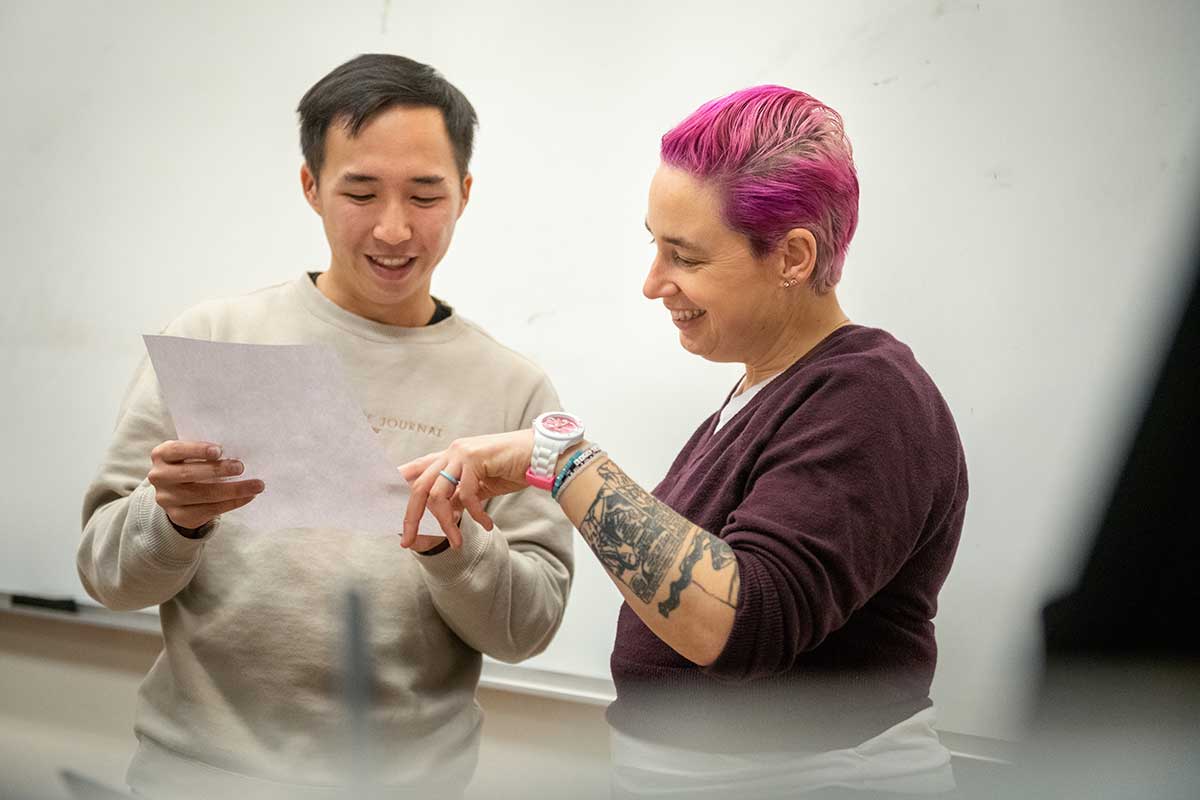
MS in Data Science
Data is one of the most important tools for shaping our economy, society, and culture. Now more than ever, we need people who can work with data to find new insights that lead to future progress. Our MS in Data Science, a collaboration between Khoury College and the College of Engineering, will equip you with the expertise in mathematics, computing, and data engineering you need to reach your goals in this ever-growing field.
Program highlights
Locations
Boston, Portland, Silicon Valley (admit term varies by location)
Credit hours
32 total semester hours required
Schedule
Core courses: Fall, Spring, Summer
Program modality
In person

Take your career to the next level
Campus locations
-

Boston
Located in the heart of Boston, Northeastern’s oldest campus is home to a vibrant community of students, researchers, and faculty working across disciplines to build a better world through CS.
-

Portland
The collaborative nature of Northeastern’s Roux Institute in Portland connects students with corporate and governmental power players across the Northeast, and beyond.
-

Silicon Valley
Located in the heart of the tech revolution (and where it began), the San Jose campus offers students the opportunities to advance the CS field in a program known for industry connections and diverse work opportunities.
Applications and admissions

Deadlines
Domestic
Fall semester: August 1
Spring semester: December 1
International
Fall semester: April 15
Spring semester: September 15
Meet our faculty
Get to know the engaged, experienced professors who are here to support you every step of the way.

Kylie Ariel Bemis
Kylie Ariel Bemis is an assistant teaching professor at Khoury College, who develops the master’s in data science program curriculum. She is interested in statistical computing environments and methods for complex data, and active in outreach to the Native American and LGBTQ+ communities.
No tech background? Check out the Align program
If you don’t have a background in computer science, then the Align MS in Computer Science might be for you. This program offers a direct path to a master’s degree — no prior tech experience required.
Visit the College of Engineering
The MS in Data Science program is an interdisciplinary collaboration with the College of Engineering.
Related programs
-

MS in Artificial Intelligence
The MS in Artificial Intelligence at Khoury College provides a comprehensive framework of theory and practice in the emerging field of AI.
-

MS in Computer Science
The MS in Computer Science at Khoury College will prepare you for fulfilling careers through rigorous courses, cutting-edge research, and hands-on experience.
-

MS in Cybersecurity
The MS in Cybersecurity will equip you to manage ongoing information security risks as you tackle digital threats.
Have questions?
Find answers in our FAQ, or complete this form to learn more about the MS in Data Science program. One of our enrollment counselors will contact you soon.